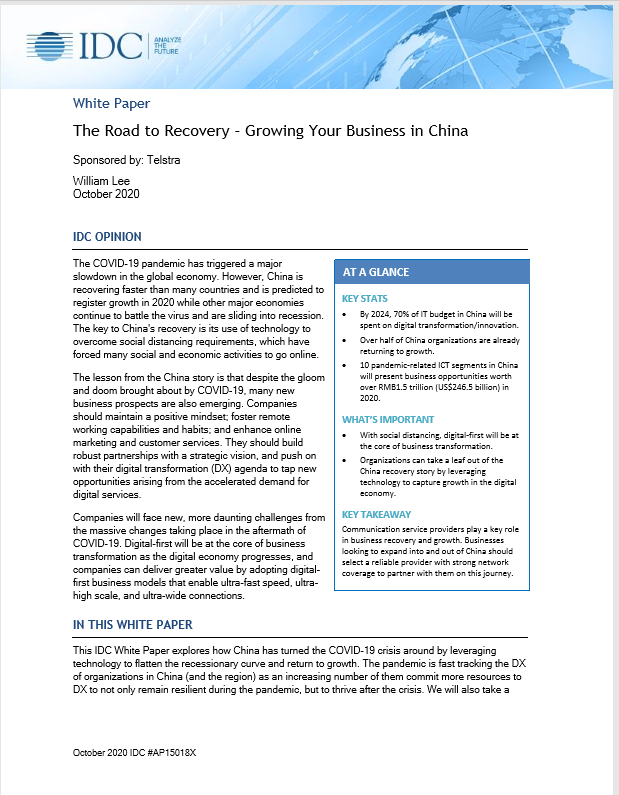Majority of Brits received no digital training during the pandemic
This is despite the fact that 89% agree that digital skills will be important to the UK’s long-term economic prosperity


A significant majority (83%) of Brits have revealed that they received no support to improve their tech skills over the last six months despite the increased digitisation observed during the ongoing pandemic, according to new findings from BCS, The Chartered Institute for IT.
This is despite a similar proportion (89%) of UK adults agreeing that digital skills would be important to the UK’s long-term economic prosperity.
This follows a study conducted by Microsoft and Goldsmiths, University of London, which found that 80% of leaders believe that investment in digital skills will be important to the UK’s economic recovery following COVID-19. A further 78% said that a large pool of digital talent will be essential to driving UK competitiveness.
However, according to BCS, most (62%) of the 2,000 surveyed adults indicated that they were not concerned that their level of tech training could affect their career prospects. Those who had received support said that they had been helped by employers (57%), family and friends (28%), and training providers or governmental initiatives (13%).
The findings from BCS further solidify the concerns surrounding the UK’s growing digital divide, which the Institute’s president, Rebecca George OBE, described as “a modern measure of inequality”.
“Over nine million people in the UK lack basic tech skills which are key to levelling up social inequality and to turbo-charging the workplace post-COVID,” she said.
“So to learn that the vast majority of people don’t recall an offer to improve their abilities in using basic software is concerning. We want to help government and industry ensure that every adult and child has the right level of digital education or training for them to succeed.
Get the ITPro daily newsletter
Sign up today and you will receive a free copy of our Future Focus 2025 report - the leading guidance on AI, cybersecurity and other IT challenges as per 700+ senior executives
RELATED RESOURCE

“That means promoting opportunities to take a really broad range of digital qualifications - from the school curriculum to professional training in the workplace,” added George.
When it came to the most demanding software, BCS found that nearly a third (31%) of those surveyed are not confident with basic data management using a Microsoft Excel spreadsheet. This comes weeks after the news that a “technical issue” identified in the government’s flagship NHS Test and Trace contact-tracing scheme centred on serious limitations in the use of Excel to log positive COVID-19 cases.
Having only graduated from City University in 2019, Sabina has already demonstrated her abilities as a keen writer and effective journalist. Currently a content writer for Drapers, Sabina spent a number of years writing for ITPro, specialising in networking and telecommunications, as well as charting the efforts of technology companies to improve their inclusion and diversity strategies, a topic close to her heart.
Sabina has also held a number of editorial roles at Harper's Bazaar, Cube Collective, and HighClouds.
-
 Global cybersecurity spending is set to rise 12% in 2025 – here are the industries ramping up investment
Global cybersecurity spending is set to rise 12% in 2025 – here are the industries ramping up investmentNews Global cybersecurity spending is expected to surge this year, fueled by escalating state-sponsored threats and the rise of generative AI, according to new analysis from IDC.
By Ross Kelly Published
-
 Google Cloud is leaning on all its strengths to support enterprise AI
Google Cloud is leaning on all its strengths to support enterprise AIAnalysis Google Cloud made a big statement at its annual conference last week, staking its claim as the go-to provider for enterprise AI adoption.
By Rory Bathgate Published
-
 Employees want purpose, and they’re willing to quit to find it – upskilling, career growth, and work-life balance have shifted priorities for workers
Employees want purpose, and they’re willing to quit to find it – upskilling, career growth, and work-life balance have shifted priorities for workersNews Employees want purpose and meaning at work — and if they don't get it, two thirds would quit to find it.
By Nicole Kobie Published
-
 DEI rollbacks could exacerbate tech talent shortages – nearly half of recruitment leaders worry diversity cuts will impact their company’s appeal and employee retention
DEI rollbacks could exacerbate tech talent shortages – nearly half of recruitment leaders worry diversity cuts will impact their company’s appeal and employee retentionNews Finding talent with AI skills has already become a major challenge for enterprises, but with some enterprises shelving DEI hiring practices, research suggests the situation could get worse.
By Emma Woollacott Published
-
 Tech firms eye temps to plug talent gaps
Tech firms eye temps to plug talent gapsNews The tech industry could be set for a spike in temporary hiring, according to a new study from recruitment firm Robert Walters.
By George Fitzmaurice Published
-
 IDC InfoBrief: Sustainability doesn’t need to be all stick and no carrot
IDC InfoBrief: Sustainability doesn’t need to be all stick and no carrotwhitepaper CIOs are facing two conflicting strategic imperatives
By ITPro Published
-
 Untethered: How CIOs and CISOs are paving the way for the new hybrid workforce
Untethered: How CIOs and CISOs are paving the way for the new hybrid workforceWhitepaper Effective techniques to transition from exposed legacy infrastructure to an effective zero trust strategy
By ITPro Published
-
 Five ways to drive innovation at the edge
Five ways to drive innovation at the edgeWhitepaper How an effective edge strategy can generate new value for your organization
By ITPro Published
-
 Creating successful supply chain planning transformations in the consumer industry
Creating successful supply chain planning transformations in the consumer industryWhitepaper Think differently about SCP transformations and, in doing so, move into a better future for supply chains
By ITPro Published
-
 Healthcare’s next chapter
Healthcare’s next chapterwhitepaper Revolutionizing how you care with EPR experts you can trust
By ITPro Published